During times of war, everyone suffers, but women have specific challenges that make them particularly vulnerable. Many women experience displacement, loss of loved ones, and become more exposed to violence during wartime. Overcrowding, poor hygiene, and a lack of privacy worsen the situation in collective shelters, causing anxiety and discomfort. Furthermore, the difficulties of caregiving may limit their ability to obtain basic resources such as food, medical treatment, and mental health support. When we look at the multiple demands that women face in these situations, it is evident that their efforts go beyond survival, they need safety, dignity, and access to resources that will allow them to rebuild their lives in the middle of chaos.
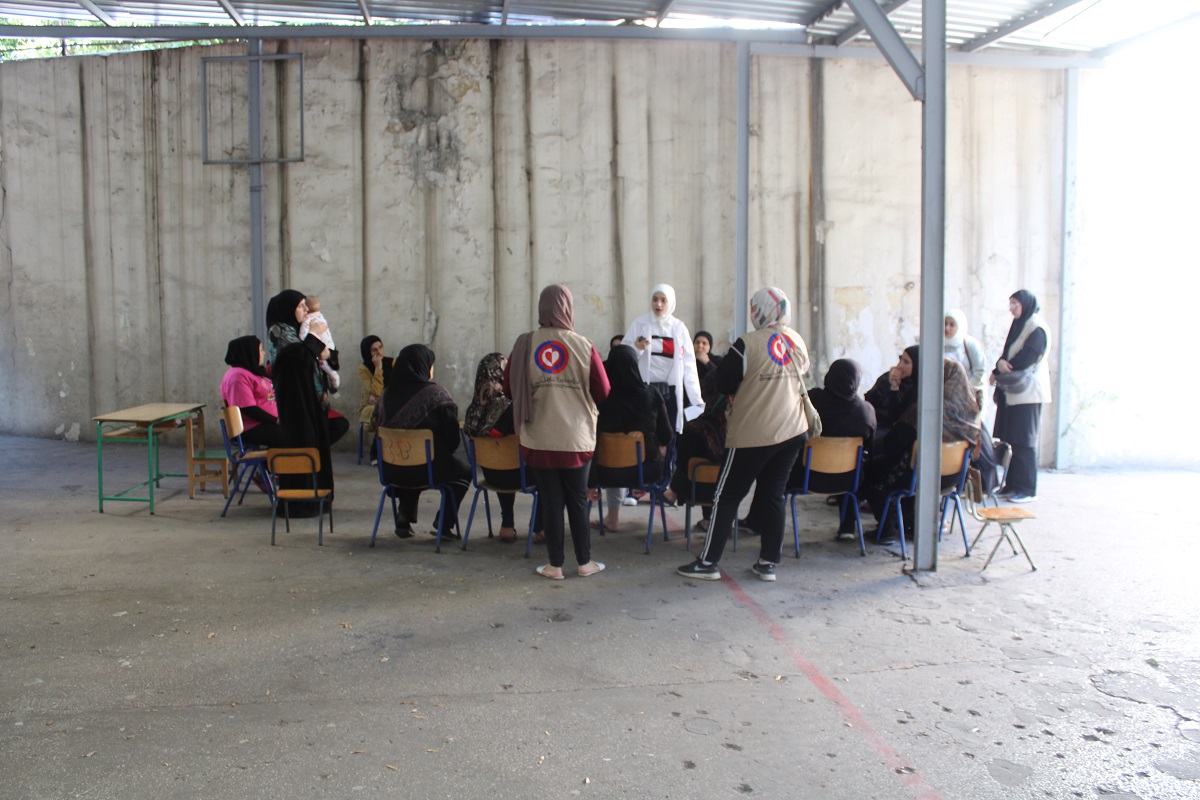 In collective shelters, women usually face serious obstacles to their safety and basic needs. The lack of privacy might cause feelings of vulnerability and anxiety as they struggle to maintain their personal hygiene and health due to absence of access to sanitation services. Women become often obliged to provide care while neglecting their own health, which complicates already existing gender inequalities. In order to address these problems, the Gender-based violence (GBV) department of Amel Association International visited the collective shelters and organized harassment and hygiene awareness sessions in addition to delivering hygiene kits. Additionally, these interventions enable women to speak up for themselves, building a community of support that improves their general wellbeing and aids in overcoming the particular challenges they encounter. Moreover, The Gender-Based Violence (GBV) department conducted awareness sessions that included important topics like harassment and personal hygiene in an attempt to empower girls and women 14 years of age and older. These sessions gave participants important details on how to identify and deal with harassment, helping them to recognize situations that can be dangerous and stand up for their rights. In addition to highlighting the importance of establishing personal boundaries, the program taught women and girls how to effectively and successfully communicate their boundaries. The mission of the GBV department was to increase the participants’ confidence and resilience by providing a safe place for open communication. To further assist these efforts, mentorship programs were developed through peer-to-peer discussions that encourage learning and experience sharing. Participants also received mental health kits that included tools for emotional support and self-care, and they also practiced breathing techniques to help them relax and develop coping skills.
In collective shelters, women usually face serious obstacles to their safety and basic needs. The lack of privacy might cause feelings of vulnerability and anxiety as they struggle to maintain their personal hygiene and health due to absence of access to sanitation services. Women become often obliged to provide care while neglecting their own health, which complicates already existing gender inequalities. In order to address these problems, the Gender-based violence (GBV) department of Amel Association International visited the collective shelters and organized harassment and hygiene awareness sessions in addition to delivering hygiene kits. Additionally, these interventions enable women to speak up for themselves, building a community of support that improves their general wellbeing and aids in overcoming the particular challenges they encounter. Moreover, The Gender-Based Violence (GBV) department conducted awareness sessions that included important topics like harassment and personal hygiene in an attempt to empower girls and women 14 years of age and older. These sessions gave participants important details on how to identify and deal with harassment, helping them to recognize situations that can be dangerous and stand up for their rights. In addition to highlighting the importance of establishing personal boundaries, the program taught women and girls how to effectively and successfully communicate their boundaries. The mission of the GBV department was to increase the participants’ confidence and resilience by providing a safe place for open communication. To further assist these efforts, mentorship programs were developed through peer-to-peer discussions that encourage learning and experience sharing. Participants also received mental health kits that included tools for emotional support and self-care, and they also practiced breathing techniques to help them relax and develop coping skills.
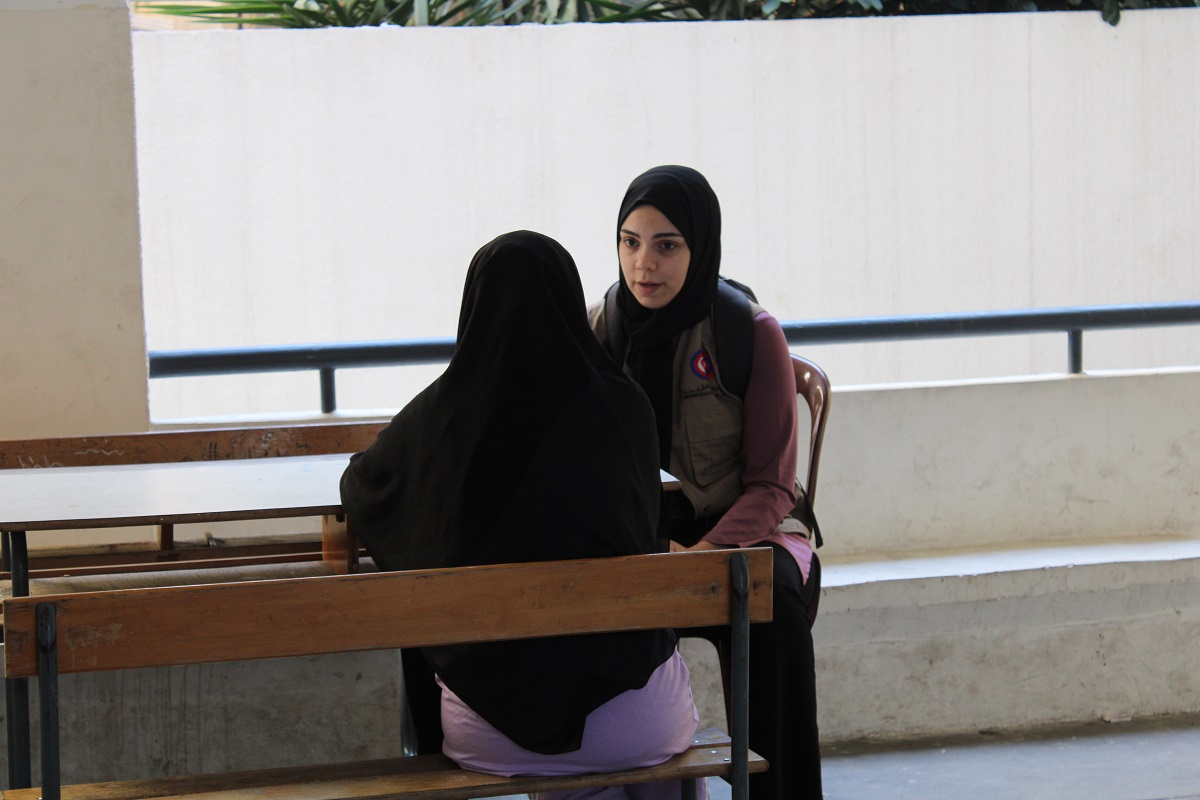 Furthermore, Amel worked with organizations including Plan International Lebanon, UNICEF, UNFPA, Caritas, and the International Rescue Committee (IRC). Through parenting and self-care capacity-building initiatives, the Child Protection (CP) department conducted focused interventions to empower women, especially mothers. The goal of these interventions was to give women the skills they need to engage with their kids in a way that promotes healthy emotional development. The program focused on the importance of self-care for mothers in order to help them prioritize their health and become better parents and supports of their children. As well, women will be able to recognize the difference between their personal emotions and their responsibilities as caregivers, encouraging a more comprehensive approach to parenting.
Furthermore, Amel worked with organizations including Plan International Lebanon, UNICEF, UNFPA, Caritas, and the International Rescue Committee (IRC). Through parenting and self-care capacity-building initiatives, the Child Protection (CP) department conducted focused interventions to empower women, especially mothers. The goal of these interventions was to give women the skills they need to engage with their kids in a way that promotes healthy emotional development. The program focused on the importance of self-care for mothers in order to help them prioritize their health and become better parents and supports of their children. As well, women will be able to recognize the difference between their personal emotions and their responsibilities as caregivers, encouraging a more comprehensive approach to parenting.
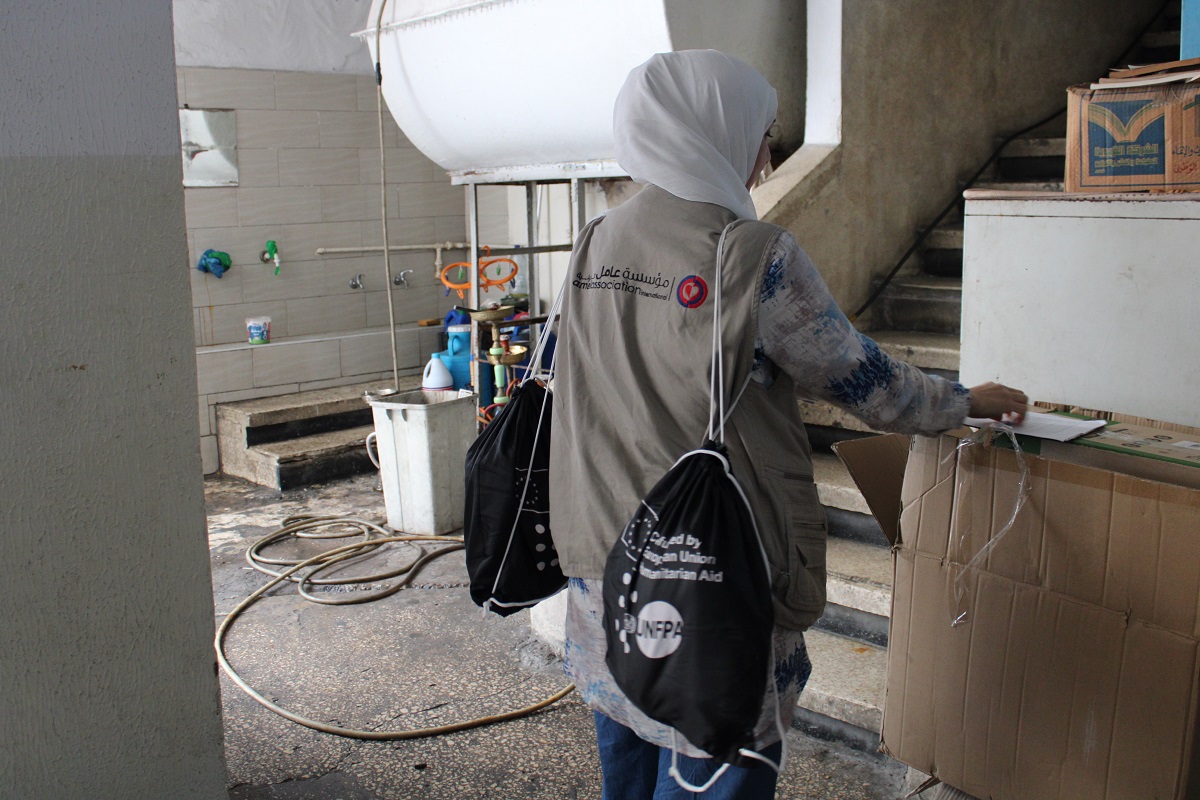 In conclusion, the various risks that occur during times of war worsen the many difficult obstacles that women affected by war face. As they deal with violence, displacement, and the responsibilities of parenting, it is critical to recognize that their needs extend beyond simply surviving. To be truly helpful, action by humanitarian organizations have to focus on these women’s safety, dignity, and access to essential resources. Finally, promoting the well-being of women engaged in conflict not only aids in their recovery but also strengthens relationships within their communities, enabling the means by which for a more equal and hopeful future.
In conclusion, the various risks that occur during times of war worsen the many difficult obstacles that women affected by war face. As they deal with violence, displacement, and the responsibilities of parenting, it is critical to recognize that their needs extend beyond simply surviving. To be truly helpful, action by humanitarian organizations have to focus on these women’s safety, dignity, and access to essential resources. Finally, promoting the well-being of women engaged in conflict not only aids in their recovery but also strengthens relationships within their communities, enabling the means by which for a more equal and hopeful future.
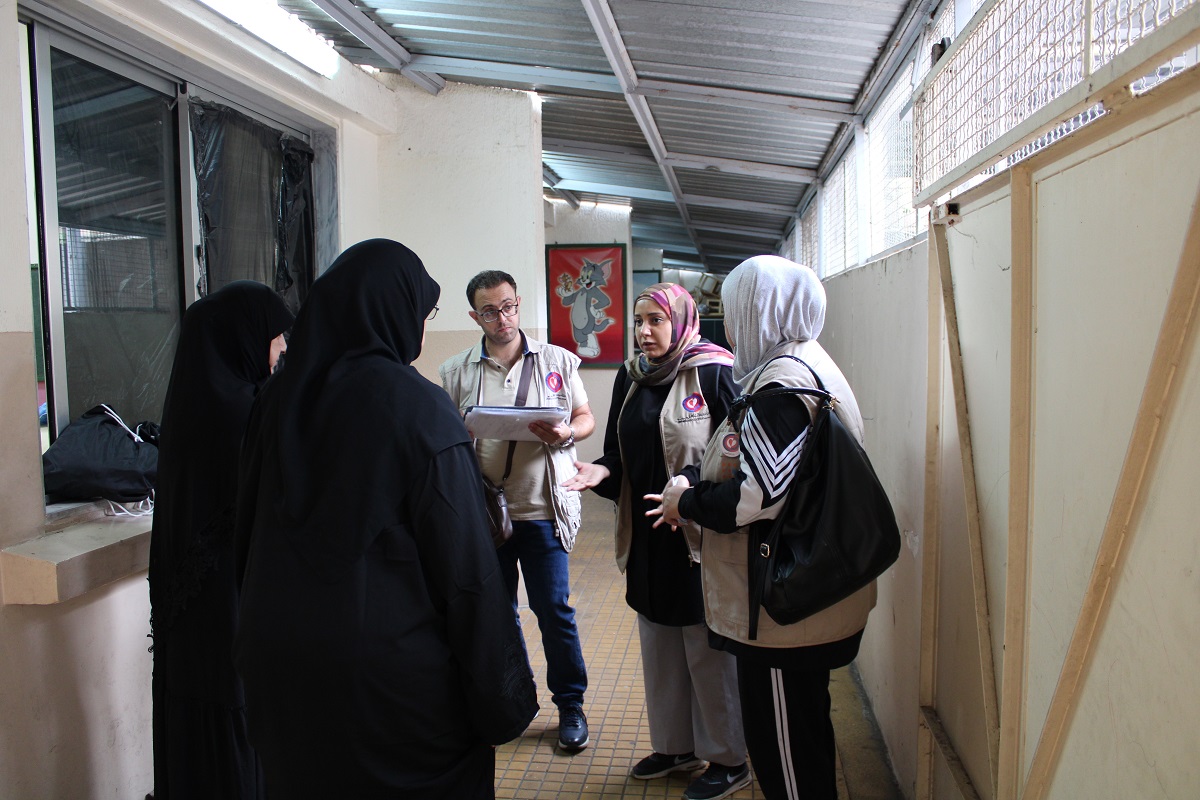
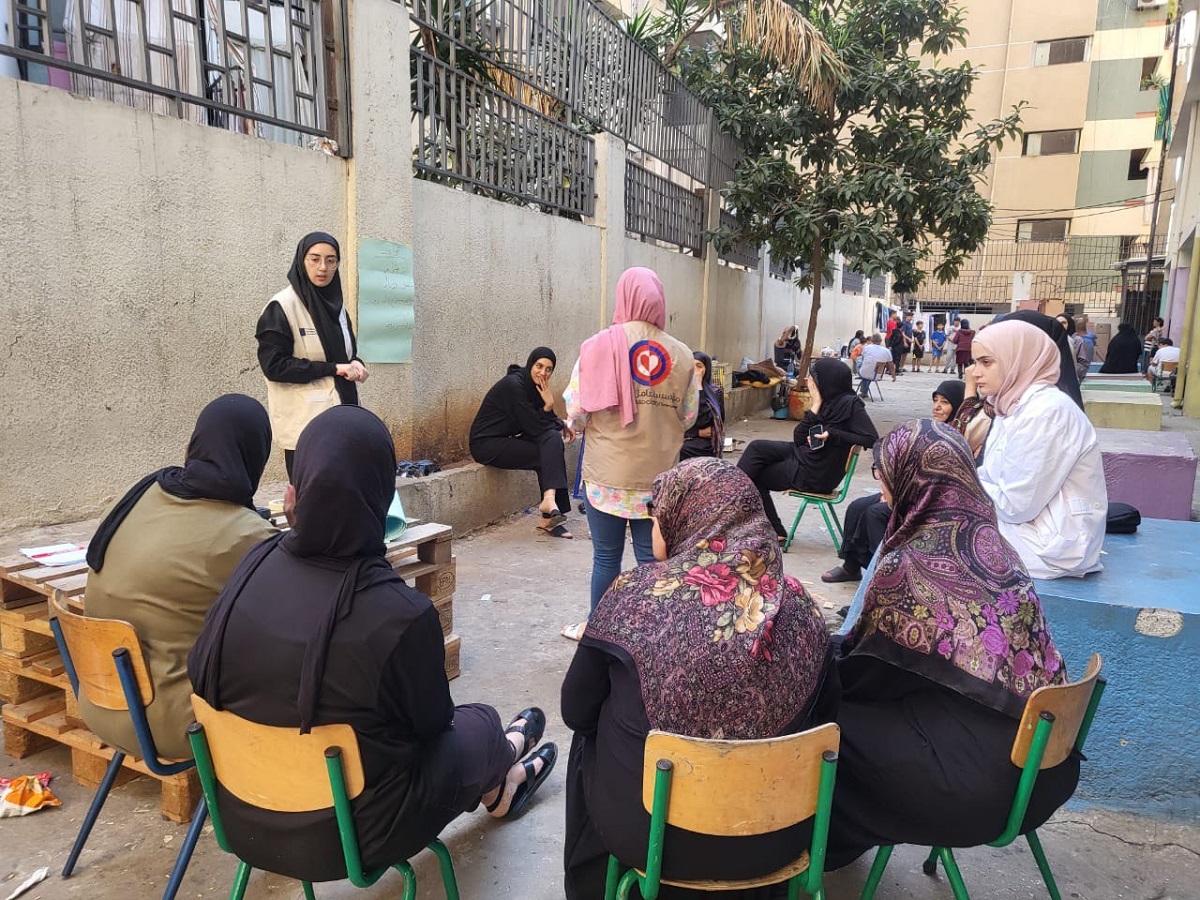
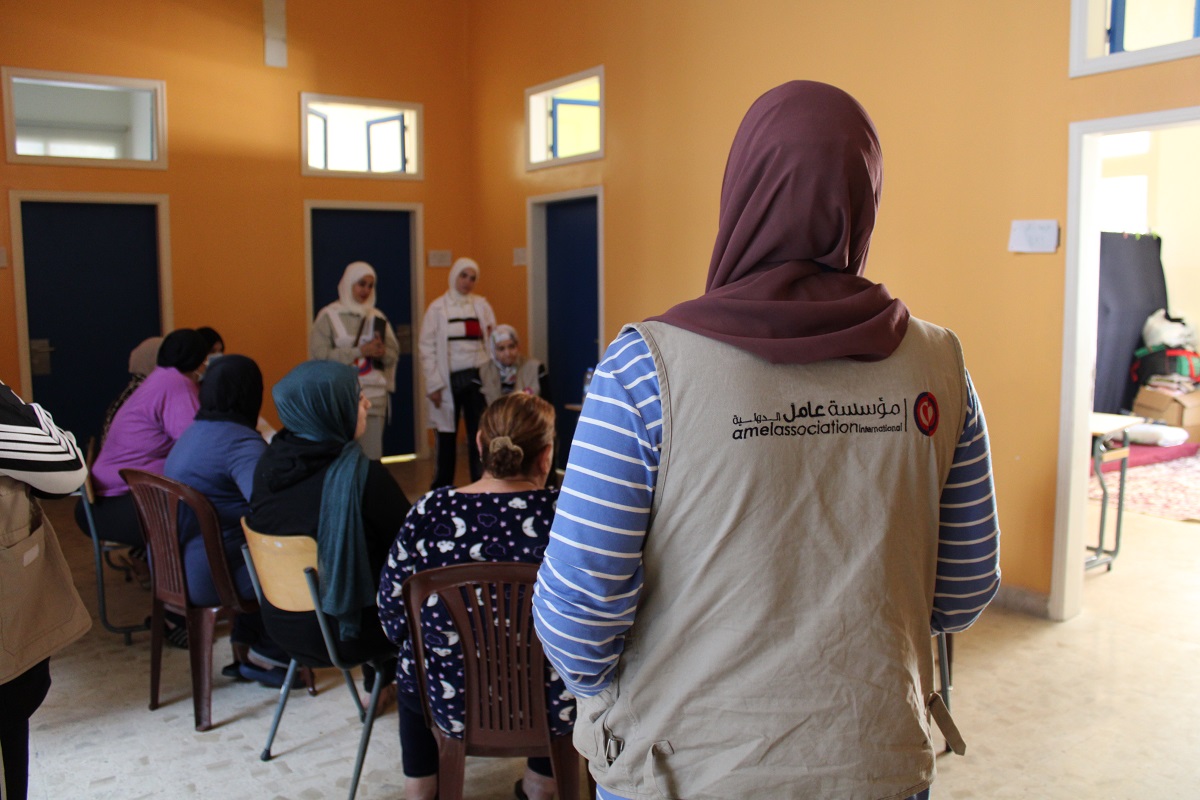
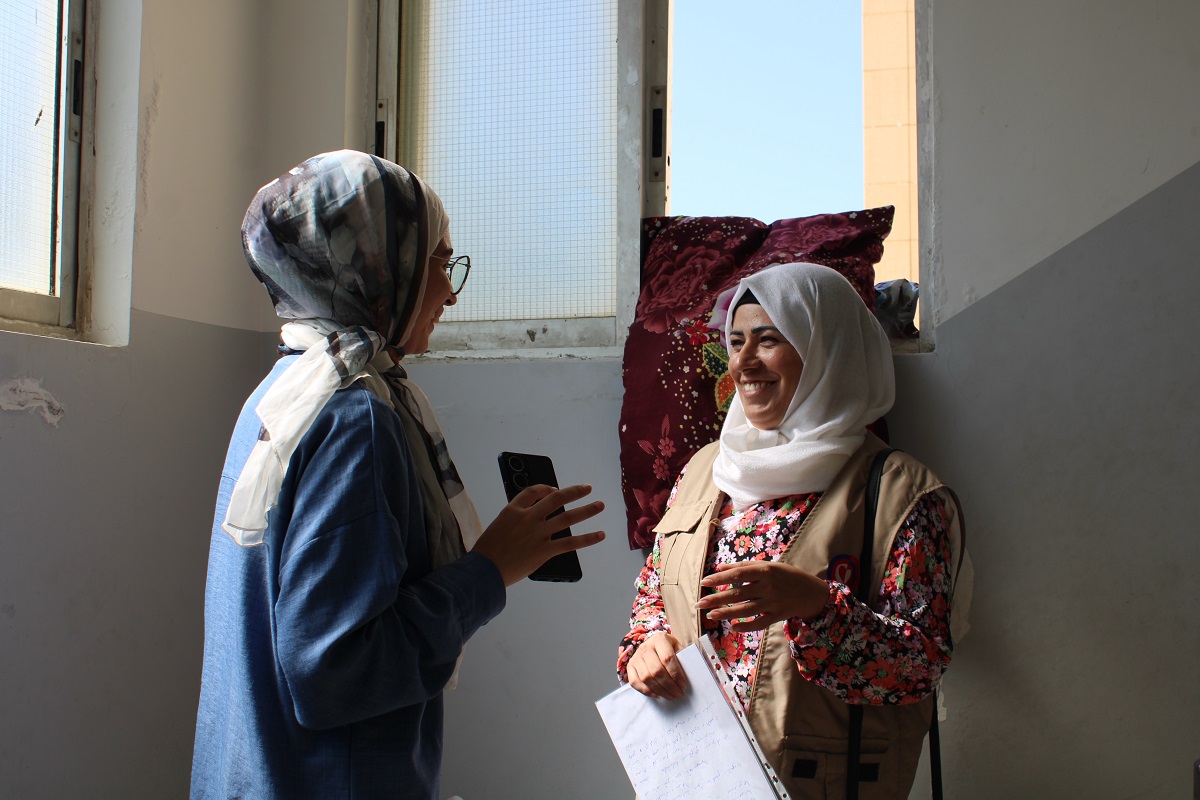

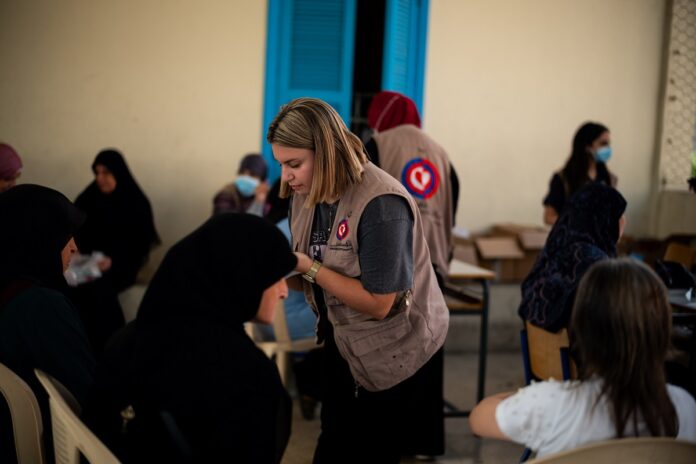
 Creative Commons Attribution 4.0 International license
Creative Commons Attribution 4.0 International license